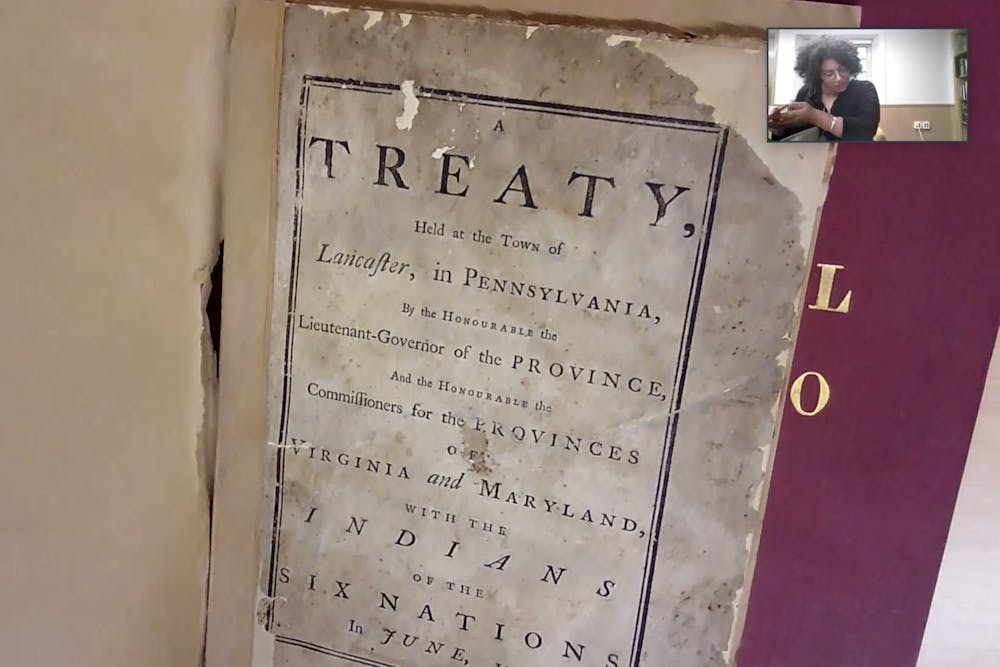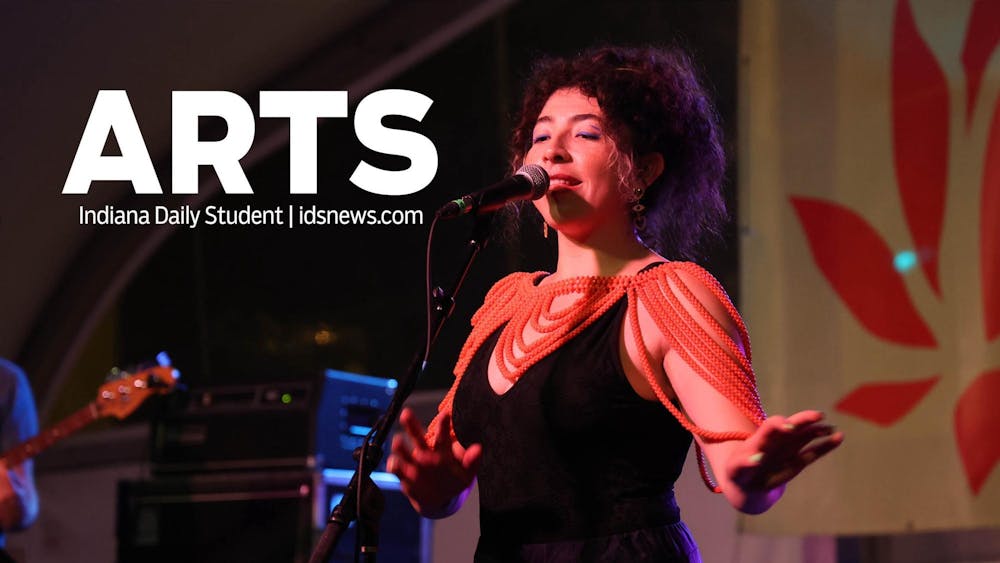Lilly Library staff and IU faculty challenged the intentions and interpretations of several historical documents relating to Native American history Monday afternoon for the fourth installment of the library’s virtual “Whose History?” series.
Liza Black, Cherokee Nation citizen and IU history professor, said even historical documents rooted in white supremacy can be used as tools of sovereignty for Native Americans, especially when studying indigenous languages.
“Sometimes indigenous communities can find words they need to know more about from, oddly, religious materials that were absolutely not done for the purpose of helping indigenous people,” Black said. “These historic materials in indigenous languages actually can do things that they weren’t meant to do. They can be decolonized in that sense.”
The document she referenced was an 1844 Christian prayer book, translated into a Potawatomi language by a Jesuit priest. Though originally intended to colonize and convert Native Americans to Christianity, the translated prayer book provided a written record of the language and inadvertently preserved Potawatomi culture.
Lilly Library fellow Romero and Black showcased five primary source documents, or firsthand accounts of historical topics, pertaining to Indigenous history in the Midwest for Monday’s webinar.
These included a book of portraits, treaty records between the U.S. and Native American nations, land transactions and an autobiography dictated by Black Hawk, a Sauk leader who fought alongside British troops during the War of 1812.
Romero said the types of documents presented symbolize larger historical forces, such as the violence endured by Native Americans at the hands of white European settlers.
“It’s relatively innocuous when you first look at it,” Romero said. “I think that Bibles and dictionaries and prayer books are all powerful symbols of colonialism for that reason, because they’re not as outwardly sensational.”
White settlers recorded all the documents, including Black Hawk’s oral autobiography, which further complicates modern historical interpretation, Black said.
“Indigenous languages are incredibly complex, far more complex than English, and many words and concepts are virtually untranslatable,” Black said. “How much was Black Hawk able to express given that he was trying to express it ultimately in English?”
The goal of the event series launched in February is to recenter historical narratives by adopting the perspectives of traditionally underrepresented or misrepresented groups in archives, Romero said. The events draw exclusively from materials housed at the Lilly Library, which is open for research to everyone.
Romero said the staff of the library encourages researchers to question everything when looking through primary source documents because many marginalized groups have been historically ignored or erased from archival collections.
“The way that things are catalogued and described — those are all human decisions,” Romero said. “It just means you have to dig a little harder.”






